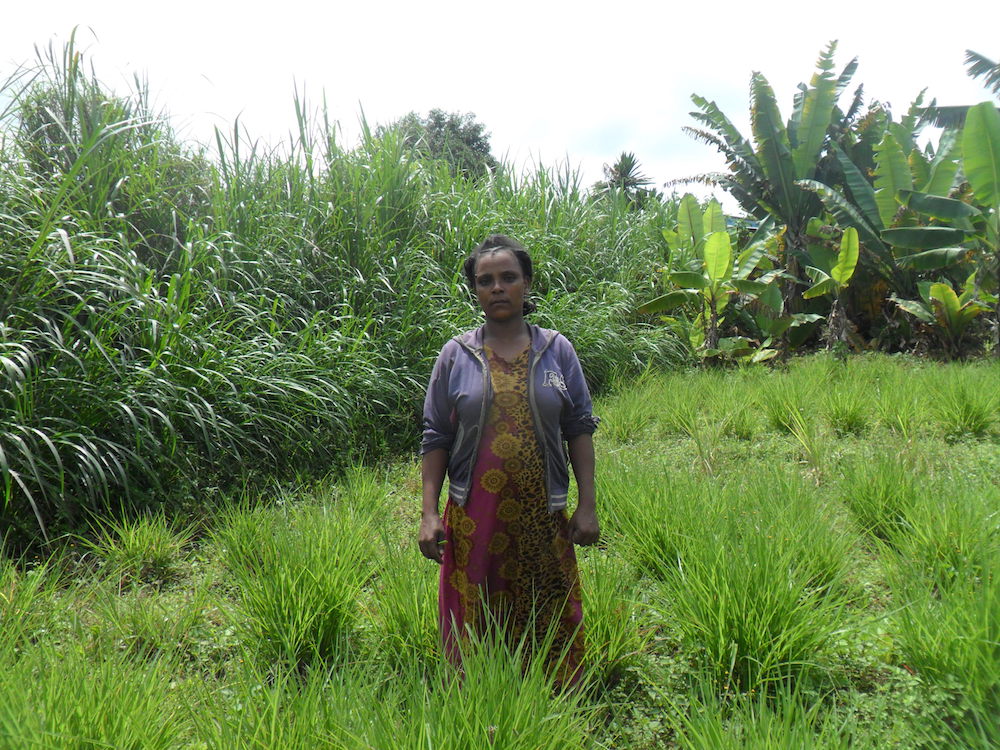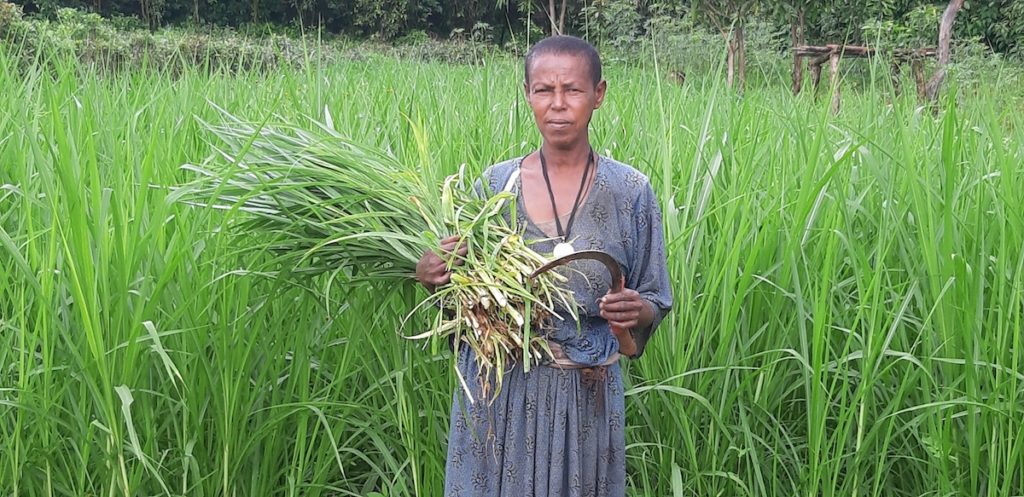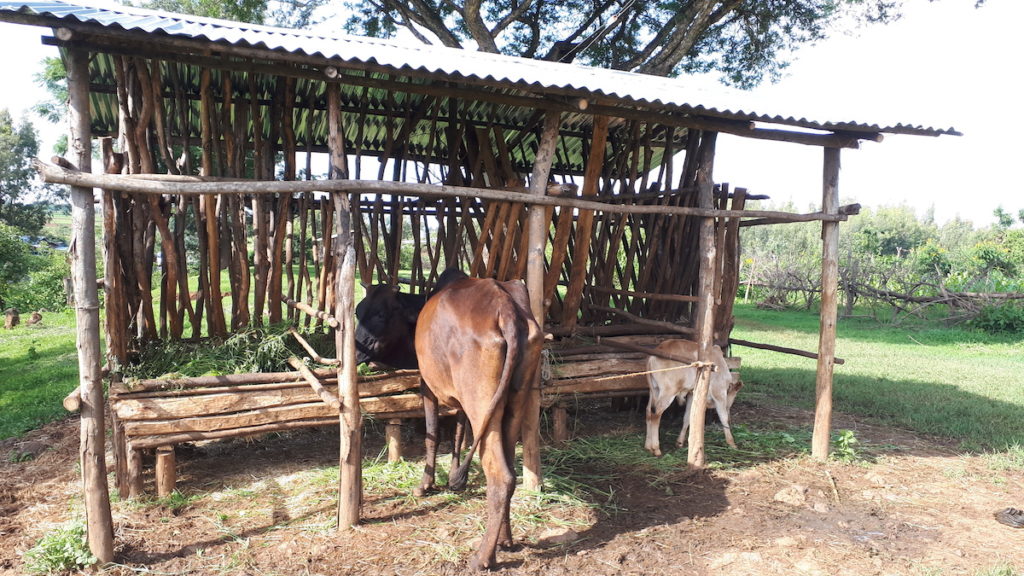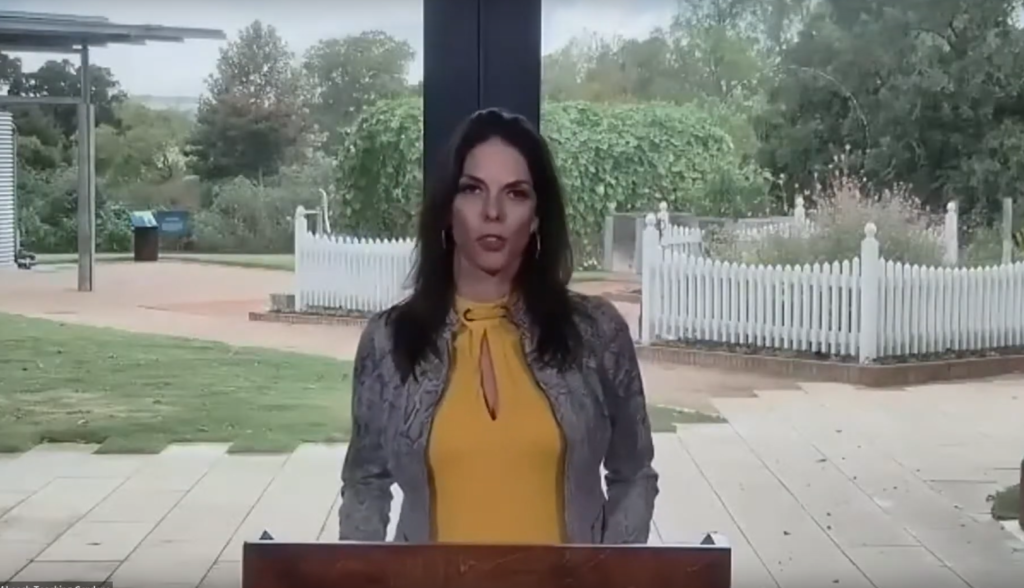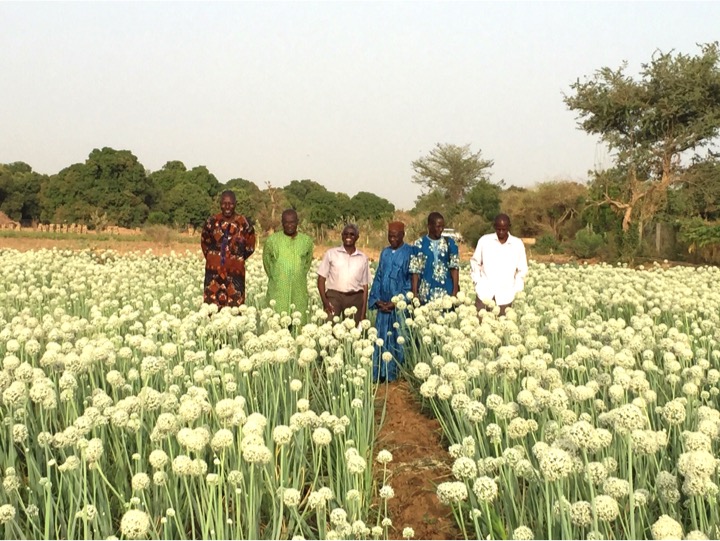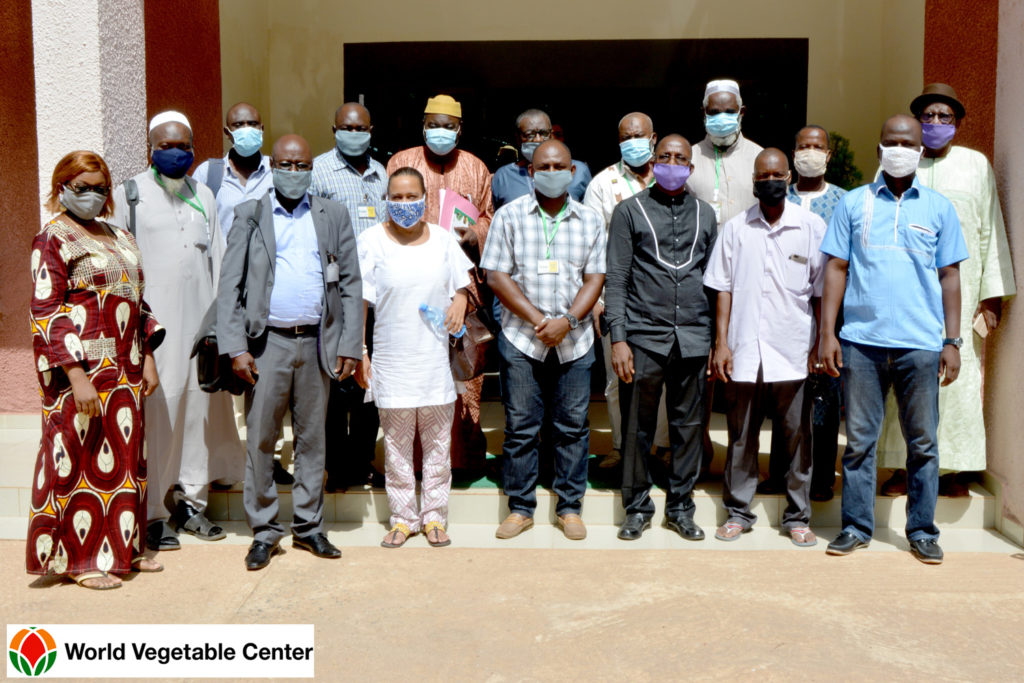This post is written by Joseph Isaiah Mensah, Manager, USAID SSI Project, PEG Ghana and was first publish on agrilinks.org.
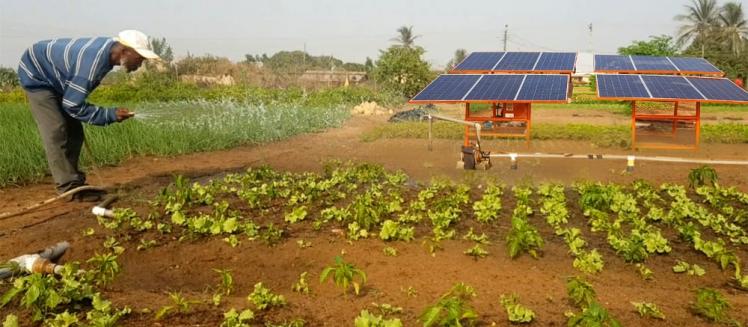
A farmer uses solar power to irrigate his crops. Photo credit: PEG Africa.
Solar power has the potential to revolutionize water use in agriculture, providing an attractive means for farmers to irrigate their crops. This is especially the case in sub-Saharan Africa, which has among the lowest electrification access in the world and irrigation potential in dry-land regions of an additional 6-14 million hectares, 84 percent of which is small scale irrigation.
Private sector companies are eager to capitalize on this potential by expanding the market for small scale solar irrigation. For these companies, serving small scale irrigators, who have traditionally been perceived as high risk, can be profitable if the right business models are applied.
PEG Africa was founded in 2015 to deliver affordable energy to the 150 million people in West Africa with no access to electricity. Based in Ghana and with operations in Côte d’Ivoire, Mali, and Senegal, we initially offered solar home systems using a pay-as-you-go financing model that enables customers — often resource-poor farmers in remote locations — to pay for and eventually fully own their solar energy products through monthly installments. These installments can be sculpted, meaning farmers pay lower amounts in lean seasons and higher amounts in harvest seasons. Financing is supported by after-sales, agronomic and market access services, helping farmers to optimize the return on their investment and reduce the payment default risk.
Barriers to irrigation adoption and scaling
In 2019, we decided to add solar water pumps to our product line, using the same financing and after-sales model. The decision followed a series of field-based tests we conducted in Ghana to verify the suitability of the technology as well as market surveys to understand demand for solar pumps among small scale irrigators in rural and peri-urban areas.
The results showed that there is a considerable level of demand as the solar pumps offer an affordable and efficient alternative to conventional diesel pumps, which are costly to maintain, have a shorter lifespan, and can have adverse health and environmental effects. Moreover, we were aware that women farmers tend to prefer solar pumps to other water-lifting technologies because they decrease the labor required to extract water for domestic and other uses such as agriculture.
These findings served as a strong basis for PEG Africa to venture into the sale of solar pumps, although we continue to encounter significant barriers to the adoption and scaling of the technology.
We identified two main challenges. The first is limited input and output market linkages (poorly developed distribution channels, inadequate input supply, information asymmetry with regard to determining price, and securing markets for produce), which ultimately constrain farmers’ productivity and profitability. The second is gender-based constraints to information and financial resources that affect women’s ability to invest in solar irrigation technologies.
De-risking private sector engagement in small scale irrigation
A new agreement aims to facilitate the development of innovative solutions to these challenges by de-risking private sector engagement in small-scale irrigation. Initiated by the USAID-funded Feed the Future Innovation Lab For Small Scale Irrigation (ILSSI), the agreement comes with a monetary award of USD 725,000 to support the trial of new business and financing models over three years.
Following a call for proposals, PEG Africa was announced as the recipient of the award on August 27, 2020 during the second Farmer-Led Irrigation–Multi-Stakeholder Dialogue event in Ghana. Hosted by IWMI, which leads ILSSI’s scaling research, the dialogues bring together relevant actors, including the private sector, to kickstart system-level collaboration on scaling small scale irrigation.
Pitching contests target next-generation innovators
To complement the award, IWMI identified pitching contests as a novel way to build capacity in the private sector. Targeting young professionals and recent graduates, the contests aim to close the research-private sector divide, drive innovation, and stimulate entrepreneurship. The first contest is being held in October 2020, and two winners will be selected to undertake a paid internship with PEG Africa in Ghana. Additional contests will be organized over the next three years.
In determining the winners, the selection committee will look for solutions that bridge specific knowledge and capacity gaps within PEG Africa. Currently, these relate to business innovations that address the barriers to equitable solar pump access and adoption. In addition, we anticipate that the interns will help us to establish a framework to track the impact of pump use on farmers through return-on-investment, gross margin and cost-benefit studies.
These innovations will contribute to the formulation of a profitable and sustainable business model for our solar pumps. At the same time, the interns will gain valuable private sector work experience as well as an appreciation for the private sector’s role in scaling development solutions.
Solar irrigation is a relatively new addition to PEG Africa’s offering but one that strongly aligns with our vision of affordable energy for those who need it. We are excited to see what innovations the interns will bring to our company and how we can leverage our established infrastructure and market knowledge to test and implement them.

